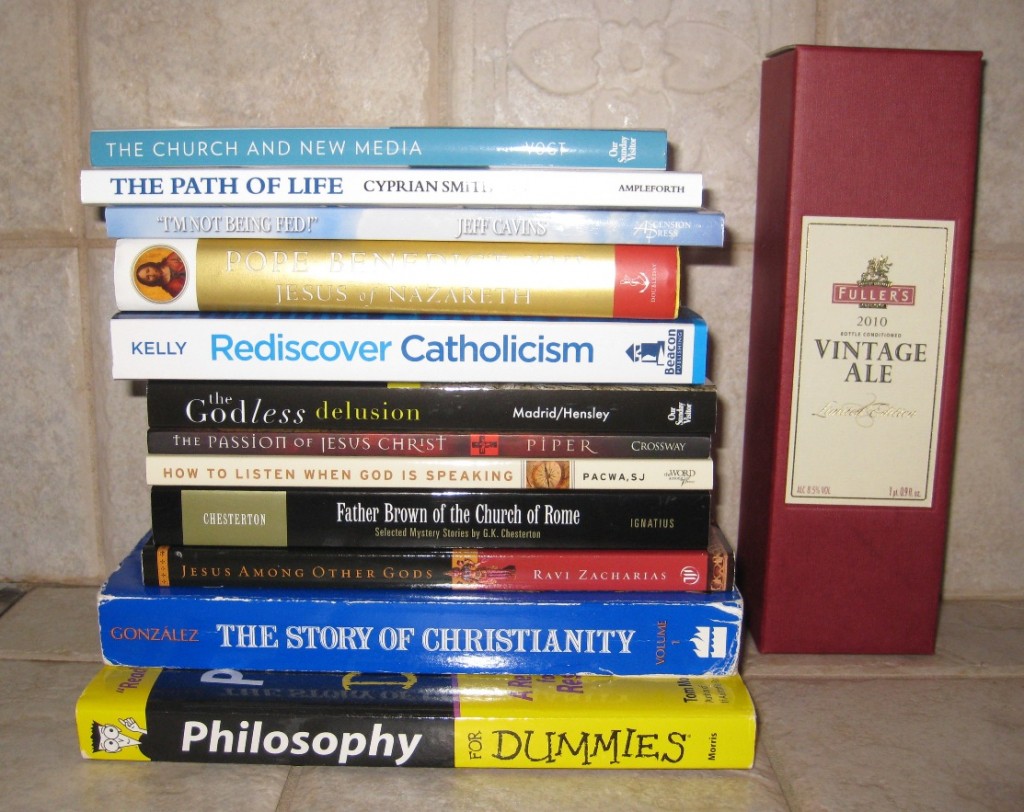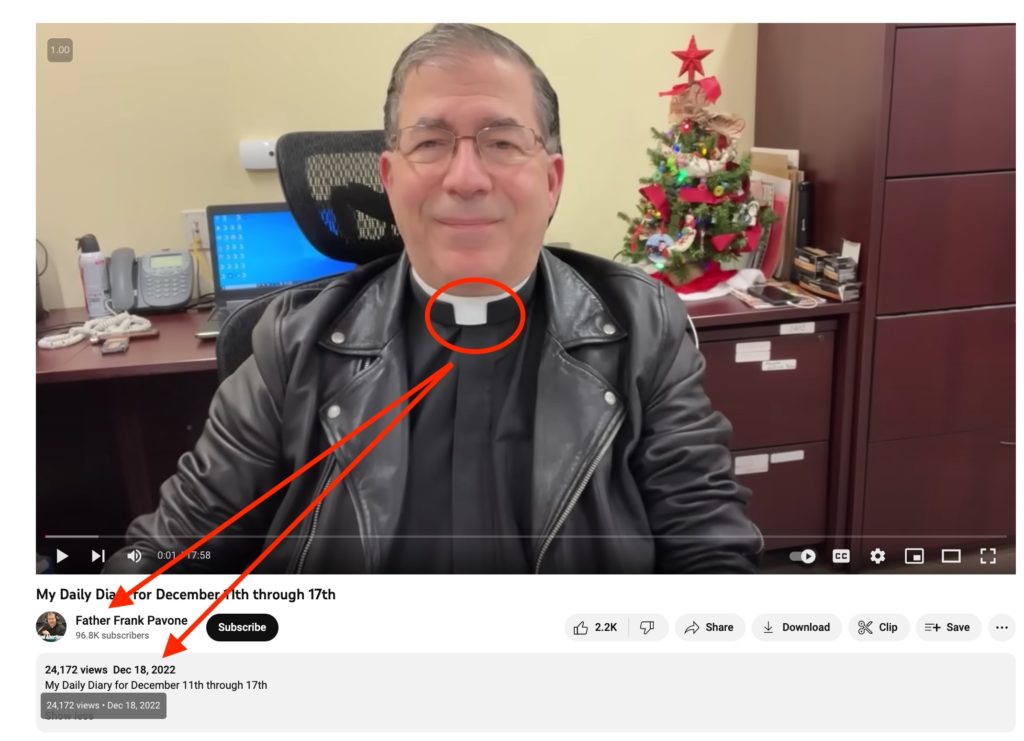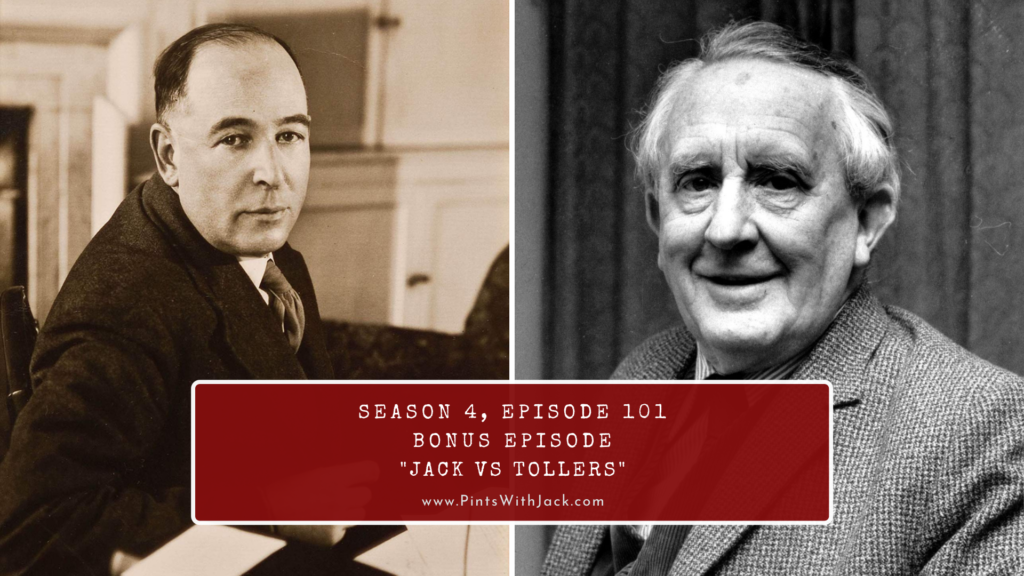So about a week ago, I posted an exchange I had with a friend on Facebook in response to his provocative “Reformation Day” post. Our discussion had paused after I asked him this question: if you couldn’t find anyone in the Early Church who held to your beliefs, would that give you any pause?
I ask this question because if someone is willing to hold onto their theological presuppositions and interpretations in the face of over a millennium of Christian witness, it says a lot…
Answering a different question
When my friend eventually responded, this is what he said…
You want me to delve into the nuts and bolts of Catholic doctrine in order to discuss what, exactly, the belief or beliefs are which I think are wrong, unscriptural, deceptive, or otherwise “evil,” and you’ve provided me with a list of candidate doctrines to consider.
This was not the question that I asked. I wasn’t asking him to deny Catholic doctrine, initially, I asked him to explain why the Early Church looked Catholic and most recently I asked how he would respond if he couldn’t find anyone in the Early Church who held to a version of Christianity which he recognized as his own.
We can get into that discussion, but it’s going to be a very long one. Whole shelves and libraries of books have been written on the subject, though. A whole Reformation occurred. I do believe that it’s important for a person to make their own case for their beliefs. To read some of these books, gain one’s own experiences, and maybe even write down the justification of one’s beliefs in order to make an argument for them. I picked out the very first point in your article as an example because I know that attempting to make a case against Catholicism is going to be very involved and I haven’t taken the time, in my life, to structure my own personal case against Catholicism. I’ve focused on Rabbinic Judaism and atheism – even Islam more so than Catholicism. What hasn’t been said and answered and rebutted and countered in the last 500 or so years since the Reformation? Where is the conversation located now?
I would like to go through your article and analyze each point one by one, making my case against them…but something like that would take a while. I hope to do it one day. But not being able to do that right now, I’m forced to make some general remarks, and so I’ll say this…
I am, of course, grateful for the many debates that the early church struggled through in order to thresh out the kernels of truth. There are, however, many mistakes and misinterpretations that – what you’re calling the “early church” – passed on. Saintly intercession and prayer for the dead are definitely two of them. Again, though I would love to go through your article one topic at a time, that is what I would have to do: investigate each item individually and articulate agreements and disagreements with nuance.
Given that he couldn’t identify a single Christian after St. Paul, how can he comment on the Early Church at all?
He asserts that Saintly Intercession and Prayers for the Dead are mistakes and misinterpretations – no evidence or argument is provided.
However, this clarify one thing, that the Early Church believed doctrines which he denies. Given the chose, he prefers to go with his own interpretations rather than the Early Church. For some reason, he thinks his interpretations superior. Where does this confidence come from? He doesn’t say. Why does nobody in the Early Church argue against this? He doesn’t say.
Let me start here:
If I think that there are doctrines that individuals in the “early church” espoused which I think are wrong, unscriptural, etc., that doesn’t mean that I have to, therefore, believe that “the beliefs of the Early Church were evil,” as you say. No, it means that I believe that THAT particular belief of those particular individuals IN the “early church” is “evil.”
I have no problem with saying that there may be some beliefs “of the early church” that are “evil” – and by evil I would mean unscriptural, misleading, deceptive, etc. That is, “not truth” and therefore, a lie. As far as a lie is evil, then that’s what I would mean by “evil.” Because it would be something that leads people away from truth. And more than that, telling people that if they don’t believe the lie, then they do not belong to the “true church” (and by implication are not regenerated and saved), is evil.
It’s not an issue for me to say that Barnabas, Ignatius, Melito, Chrysostom, Athanasius, Origen, Cyprian, Tertullian, Basil, etc. could be mistaken on certain things and could have believed false doctrines that would prove to be detrimental to people’s faith and relationship with HaShem and, therefore, those particular beliefs are evil. Their words are not scripture. They have no spiritual authority. They are, to me, of similar status to the sages of Rabbinic Judaism or some biblical scholars in more modern times. Or even some IN modern times. That’s not a problem for me. What those “evil” doctrines are? I would have to thresh that out one by one. I don’t have any particular one in mind right now.
You have one in mind. You present the example of Ignatius excommunicating the Docetists because they didn’t believe the Eucharist was the real flesh of Jesus. So let’s deal with that one now. The Docetists were right on this count, and Ignatius was wrong. Whole shelves have been written over this one issue, so I don’t think it would be beneficial for you and I to get into it, except to say that from a Jewish perspective, it is absolute nonsense and obviously pagan in influence to suggest that when Jesus was leading the Seder meal and got to the Afikomen portion and broke the matzah and said, ‘This is my body,’ that He meant anything other than that the breaking and burying of the matzah represented and was a symbol of His death. Now, mystery surrounds the origins of the afikomen tradition. It wasn’t called “afikomen” until medieval times, but the tradition goes all the way back to at least the first century and Austrian Jewish scholar Robert Eisler proposed in 1925 that that the tradition was conceived by first century Jewish followers of Jesus, inspired by His last seder. Why make that tradition if this is not the symbolism that Jesus intended?
Ignatius’ misunderstanding of the symbolism surrounding the Passover seder is in keeping with his general anti-Semitism. It is well known that he sought and advocated for separating and distancing the church from any and all hint of Judaism. Though in his greeting to the church of Smyrna he comes across as genial, “…for he is a mediator between God and man for the peace of Israel,” in the same letter he accuses Jews of being Christ-killers.
Some of his writing, though not as anti-Semitic as is Justin Martyr’s or Augustine’s, is an obvious augmentation of the “Parting of the Ways.” Here’s how Judith Lieu put in her book Image and Reality, “For Ignatius, Judaism and Christianity share no common ground and it is inconceivable that anyone should partake in both. Yet the very force of his argument demonstrates that this was precisely what was happening, or perhaps what was happening was that his clear definition of Judaism and Christianity did not match the life of the churches.”
– Judith Lieu, Image and Reality: The Jews in the World of the Christians in the Second Century (London: T&T Clark, 2003), 40.
For example, in his epistle to Hero, “If anyone says that the Lord is a mere man, he is a Jew, a murderer of Christ.” He’s using the term “Jew” as an insult. His epistle to the Magnesians: “to those who had fallen into the error of polytheism he made known the one and only true God, his Father, and underwent the passion, and endured the cross at the hands of the Christ-killing Jews, under Pontius Pilate the governor and Herod the king.” And, “Abide in Christ, that the stranger may not have dominion over you. It is absurd to speak of Jesus Christ with the tongue, and to cherish in the mind a Judaism which has now come to an end. For where there is Christianity there cannot be Judaism.”
In his epistle to the Philippians, “Do not lightly esteem the festivals…If anyone fasts on the Lord’s Day or on the Sabbath, except on the paschal Sabbath only, he is a murderer of Christ…If any one celebrates the Passover along with the Jews, or receives the emblems of the feast, he is a partaker with those that killed the Lord and his apostles.”
Obviously, then, if he says that anyone who receives the emblems of the Passover is a partaker of those who killed Jesus, he’s not going to understand the symbolism of the Seder and he’s going to misinterpret it. If Ignatius did not understand Jesus’ symbolism in the seder meal and instead taught the “real presence” of Messiah in the bread and wine – which would have been heretical to Jesus’s Judaism Himself – then that’s consistent with Ignatius’s anti-Jewish leanings. It’s clear the man loved Jesus…but he did so without really realizing that Jesus was Jewish, practiced and taught Judaism, had no intention or desire to create another religion other than Judaism, and partook in and led these feasts Himself that Ignatius is so wary of. This is false teaching. This is leading God’s people astray. This is causing a rift, a schism in the body of Messiah between Jew and Gentile. This is…evil.
“Ignatius emphasized Jesus’s death and resurrection (not his life and ministry), championed church authority and hierarchy, and strove for the de-Judaizing of belief in Jesus — a cluster of themes associated with the faction I identify throughout as Pauline-Lukan. Eusebius informs us that Ignatius was the third Bishop of Antioch, following Peter and Evodius, apparently the first Gentile to rise to this status. Ignatius’s episcopate, whose background and affinities were not Jewish, was a triumph for the Paulines. Insistence on unity and hierarchy, an Ignatian maxim, became characteristic of the emerging Pauline proto-orthodox strand. Ignatius, free from Paul’s complex relationship with the “Pillars” and from any emotional attachment to Judaism, articulates a more overt and unequivocal negative tone toward the beliefs and traditions of the founding fathers.”
– Bibliowicz, A.M. (2013). The Anti-Jewish Strand in Ignatius. In: Jews and Gentiles in the Early Jesus Movement. Palgrave Macmillan, New York
Is Jesus going to return to an anti-Semitic bride?
I could go on, but I’ll respond to your last question. Would it give me pause if I could not find anyone in the “early church” who “held to my beliefs?” The question is nonsensical because everyone in the early church held to my beliefs. Namely, that Jesus was and is the Messiah the Son of the triune God who incarnated, lived a sinless life and gave His life as the offering to atone for the sins of the world, inviting all of us into a new covenantal and personal relationship with Him so that we can be redeemed, transformed, and sanctified and be with Him in the new creation for eternity. They held those beliefs, I hold those beliefs. Therefore, I can and do find people in the early church who hold my beliefs. No “pause” is to be had, there. Anti-Semitism and twisting scripture and teaching and enforcing one’s misunderstanding of Jesus’s Judaism and, therefore, teaching and enforcing lies and false doctrines? Yeah, that gives me pause. Evil gives me pause, and anti-Semitism and false teachings are insidious evil.
//You cite a couple of contemporary scholar’s opinion about Ignatius, which doesn’t carry much weight with me.//
– Well, their interpretation carries weight with me. It makes complete sense, from a Jewish perspective.
//You simply *assert* antisemitism in the texts, but the standard you use I think would also condemn the New Testament authors!//
– This is an ignorant comment. They are incomparable. And I’m not asserting anti-Semitism. I’m reading it. There are no other ways to interpret the plain reading of his words.
//Ironically, I was first introduced to Ignatius by a Hebrew Catholic, Dr. Lawrence Feingold, and he didn’t have this interpretation.//
– Great. Good for him. This Jew can see the anti-Semitism plainly. Along with, by the way, what I believe is the majority of scholarship. It’s common knowledge that particular early church fathers were anti-Semites. Everyone knows this. It’s not disputed.
//I find it rather ironic that you celebrate “Reformation Day” and yet charge Ignatius with “causing a rift, a schism in the body of Messiah”… Do you think the Reformation caused unity or division?//
– I charge Ignatius with ethnically-based schism between Gentile and Jewish followers of Messiah. This was a bad thing. I charge Luther et al with theological rift between a corrupt, false religion and those who desired to actually follow and obey the scriptures. This is a good thing. This is “making holy.” To cut and separate. The Reformation was a step in the right direction. (Hopefully this brings clarity to help you “re-think your thinking,” as my dad says. Don’t mind him, btw. He’s harmless.)
//I’m still not clear as to which of the 21 doctrines presented you’d regard as evil. //
– Obviously you aren’t, because I stated (a couple of times) that I’m not going to evaluate them one-by-one right now.
//The only one you mention in your response is the Real Presence, which you reject. The trouble is, that teaching is *universal* in the Early Church.//
– The early Roman Catholic religion, you mean. Which is fine by me. Mormonism believes weird things, too. False religions are entitled to their false beliefs.
//If you’re going to deny this doctrine, that doesn’t really leave anyone in the Early Church.//
– I don’t really understand what you’re trying to say, here. People within and without of the Roman Church believed true things and false things. Some were regenerated, some were not. Doesn’t matter if they belonged to the Roman Church or not. Belonging to the body of Messiah is not co-equal with belonging to the Roman Church.
//This creates lots of problems, including the question of the canon since you think that the people who discerned it held to evil doctrines.//
– Nope. I see no issues, there. God uses fallible people. Always has, always will. And anyways, the Canon is internally consistent and self-authenticating.





